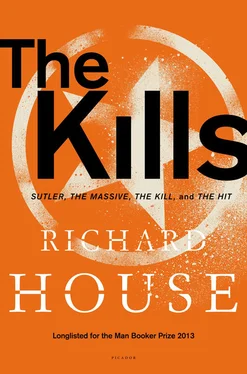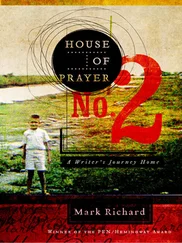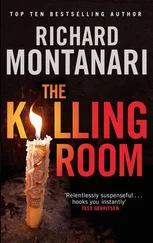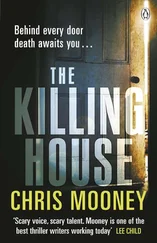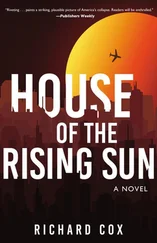He found the fort as decrepit and uninteresting as the guidebook suggested. With over half of the wall collapsed, the hill lay bare, a black slug of rock stripped by the wind. Signs turned about-face warned that the road was unsafe. Broad fissures crazed the stone; cracks which appeared to run the width and depth of the plateau. Close up, the rock appeared to be made of separate upright stacks. Ford stepped delicately across with the same unease he’d felt straddling the fence. A warm updraught blew through the crevices. He crouched and dropped a pebble and listened as it scuttled down, the noise tapering to nothing.
In all directions pale land gave out to pale sky. Scrub farmland cut close about the town. A coach wound slowly through the market to the square. Most of the travellers would only see the terminus and then press on to Birsim. He needed to decide what he would do, when and where he would move on. If things were good now, stable, didn’t it make sense to wait, to stay safe? He didn’t want to admit that the next steps, the risk of going to a larger town, the risk of transferring the money, were easier to stall for the moment than face. If things were calm, he saw no harm in allowing them to remain calm.
He walked back alongside the workshops. The man turned the bowl over in his hands and looked up with a plain unquestioning expression. They did not talk or exchange greetings.
* * *
Without immediate fear of discovery the day fell into order, smooth and easy, and this unruffledness bothered him so that he couldn’t determine what he wanted. Twice he decided to have his hair cut, and twice he walked up to the shop and then changed his mind. The clothes he needed, he didn’t want, and while there was one shop with a stack of old computers inside, the cafés were too basic, simple rooms with tables and chairs. No internet. No wifi. His lack of purpose leaked into everything about him, so that the market traders, the women shopping, the men at cafés, all seemed idle, disengaged. He returned to the barber shop, sat down before he could change his mind, and told himself not to move. The shop opened on one side to the market and on the other to a boulevard lined with palms and dry bushes, and a slope-roofed building which he first took to be a school, mistaking a parade ground for a schoolyard, a barrack for an assembly hall.
A doorway beside him, doorless, opened to a corridor which led to the hammam. A man scrubbed the tile floor, hosed the walls, returned with towels, ignored the waiting men. Ford watched him in the mirror, preoccupied by his steady labour. Another figure held back in the doorway, and when Ford looked up he saw that this figure was — although it could not be — Kiprowski. This certainty came to him with shock and a kind of joy, and when he leaned through the doorway to look into the empty corridor the barber tutted and gently waggled his scissors. In an instant Ford’s certainty dissolved. Customers watched with folded arms and pushed their backs into their chairs. It was not Kiprowski, of course, but a desire for familiar company.
Ford faced himself in the barber’s mirror and tried to conjure Kiprowski out of the shadow at the soft curve of the doorway, but nothing came to him. Why had he assumed that this stranger or these shadows were Kiprowski when he could not consciously reconstruct the man? When he could barely remember his face?
It was fear, of course, but fear of what, success, that he would return to an ordinary life as Ford, a life in which nothing was at risk, as if this had never happened? He missed Sutler, and missed the simple buzz from the deception which ran as an undercurrent to every moment at Camp Liberty. While Sutler had not yet proved himself, he had also never failed. As Sutler he’d given no thought to his return to life as Ford, and made no preparation.
When it came to his turn the barber held up both a razor and a pair of scissors and it took Ford a moment to understand that he was being offered a choice of how his hair should be cut. He looked carefully at the photos taped beside the mirror, and pointed at one and said, there, that one. Like that. He could smell the barber, not unpleasant, a hint of nicotine and talcum. It wasn’t Kiprowski he remembered now so much as his absence, a gap in the doorway where no one stood.
While the barber cut his hair Ford watched the soldiers in the barrack yard. Almost midday and the men laboured under the full force of the sun, parading in a tight squad, their skin absorbing light, everything about them soft and unready. He guessed that they had been drafted into service, and while they performed the required manoeuvres he detected a reticence, either uncertainty or reluctance. It would be better if these men were sent home before they caused harm, or before harm came to them.
Ford nursed a fragmentary notion, the image of Howell walking away, of Kiprowski rushing forward the moment before all of the chaos, before the building disassembled and the walls pulsed out. In that moment — before black smoke, white smoke, before the blast came at him as heat but also texture, before it threw him from the building, before his head became busy with pig- and bird-like squeals — in that moment before chaos burst upon them, before all of this, there was Kiprowski, hurtling forward, arms locked to shield his head, his eyes squeezed shut.
* * *
The barber insisted that Ford remain in his seat, insisted on shaving him. Ford settled back and noticed that the waiting customers looked away with disinterest. When the barber stepped aside, Ford was struck by how different he appeared. Two strangers, side by side, ashen, in a hard sunlight in a bright room. With shorter hair, without the beard, with a skinnier face, he appeared considerably younger. Only his eyes and the way he narrowed them to focus gave any idea of his true age.
He wiped his neck and could not look at the doorway or the mirror. He teetered at the cusp of some understanding — a realization about what had happened at Southern-CIPA. Did Kiprowski know about the explosion? Ford knew he could not depend on this memory, because he remembered very little about it. The fact that Kiprowski appeared to be running the moment before the explosion could be a simple mistake, the events could have been synchronous — Kiprowski running and the smoke blossoming behind him at one and the same moment. He couldn’t tease it out: Kiprowski’s run, a mere six or seven steps, seemed endless to him, the man running at full pelt toward him as if to hammer him down.
If he could speak with Geezler this would all be different. He wanted to speak with Geezler to figure this out.
* * *
At the market he spied Nathalie and caught her off-guard. Surprised, she spoke automatically in French. Ford apologized in English.
Still a little taken aback Nathalie said she hardly recognized him from this morning. ‘You look different. Much better. So much nicer.’
Ford stroked his chin. ‘I’m a new man,’ he said, not quite believing himself.
‘Very much so,’ she agreed. ‘For women it’s not so easy. We have to work harder.’
He asked what she was doing, and she told him, half-serious, that the town was too small to become properly lost in, and that she was in the mood to lose herself.
‘Are you waiting for your husband?’
Nathalie again appeared confused. With a little laugh she explained that he had this all wrong. ‘Martin, no? No, no. They won’t be here until later.’ The idea returned to her and she laughed again, excusing herself. ‘And you? Are you waiting for someone?’
‘It’s a long story. But no.’ Ford explained that he needed someone to help him buy new clothes. ‘My luggage,’ he said, ‘was lost. All gone. I need to change some money also, all I have are dollars.’
Читать дальше
